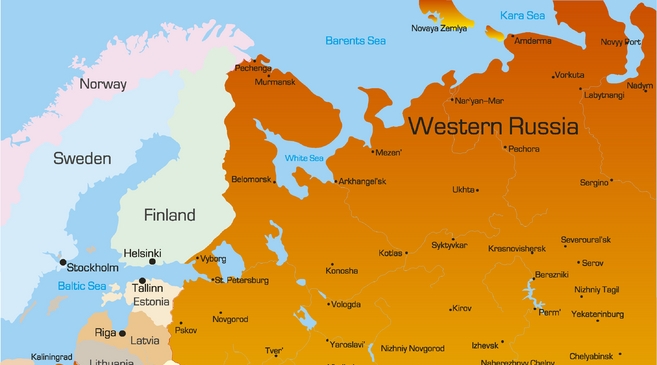
What next for Russia?
Russia is a European country, albeit one with many non-European interests. Russia and the other countries of Europe share a common concern for the stability and prosperity of the continent. Yet many commentators ignore this fact, arguing that because Russia's crisis is terminal, it can not play a role on the international stage.
That is a great oversimplification. History does not move in simple lines, either upwards or downwards. The real Russian revolution - the break with the closed, authoritarian, militarised and imperial system of both Tsars and Commissars - came only in 1989, not in 1917. And we know from history that revolutions take decades, if not centuries, to work themselves through.
It was nearly 200 years before the Americans finally established the universal democracy which they proclaimed in 1776. History is supposed to have accelerated since then. But the generations still succeed one another at roughly the same rate, and underlying public opinion only changes with the generations, not with the headlines of today's newspaper. We will not understand very much about the present Russian revolution if we fail to understand the factor of time.
One outcome of the autumn crisis is most unlikely: the restoration of the Soviet Union. Older Russians, who remember the prestige and power their country once enjoyed, may yearn to recreate the past. But any such enterprise would have to overcome huge and probably insurmountable practical difficulties. There is no reason to believe that the vast majority of Russians would be willing to pay the necessary price. And nowadays what the vast majority of the Russian people think-and what they want-counts for far more than it ever used to.
Theorists in the West and extreme pessimists in Russia point to other possibilities. Famine and popular unrest, or a mutiny by the demoralised military, could lead to chaos. The country might even break into small ethnic republics, or at least into three large territories based on Europe, Siberia and the Far East.
These are not implausible propositions, but they give insufficient weight to some crucial facts. The hardship suffered by ordinary people is great and it is growing. But Russians have already learned to adapt: they take two jobs, grow their own food and help one another out in adversity.
The minority of Russians who live in Siberia and the Far East have just as great a sense of pride in their country as the Russians who live in Europe. Most of Russia's provinces rely on Moscow for subsidies and for protection from foreign neighbours. None of them are likely to push their luck to the point of an open breach. Yet even if Russia were to descend into chaos, it would not be the end of the story. Russia has demonstrated more than once that it has a remarkable capacity to regenerate itself from national catastrophe.
More plausible than a return to empire or collapse into chaos is the possibility that Russia might descend into a swamp of corruption and crime, economically stagnant, with a larger military than the country needs, and no more than an intermittent devotion to democratic principles. That would not provide a final answer to Russia's problems, any more than it for the problems of Latin America. Sooner or later Russia would have to emerge from the swamp, as Argentina and Chile have already done. In the end, Russia will haveto live in the modern world and start again on the path of reform.
The pessimists do not take enough account of what the Russians have achieved already. In August there were three prime ministers in three weeks. But these changes occurred - more or less - within the framework of the constitution, and the final say belonged to parliament. People who had not received their wages and pensions for four months took to the streets. But their demonstrations were orderly and less numerous than the pessimists had predicted.
The press covered the crisis freely and sometimes in excruciating detail. That sort of thing happens in democracies. It first started to happen in Russia a mere nine years ago, when the elections organised by Gorbachev began to break the Communists' hold on power. Slow, bumpy progress towards a Russian version of liberal democracy and market economics remains a plausible, even a probable, scenario.
The responsibility for change in Russia lies above all with the Russians themselves. But the rest of Europe, with which Russia shares a continent, a culture, a nexus of economic interest and much history, bears a responsibility as well. Its institutions, above all the EU, can offer Russia a practical relationship of mutual self-interest. The process is hampered on all sides by attitudes formed during Europe's bloody past. But if attitudes are mastered and statesmen are practical as well as wise, Europe can contribute to Russia's evolution in ways no other continent can match.
